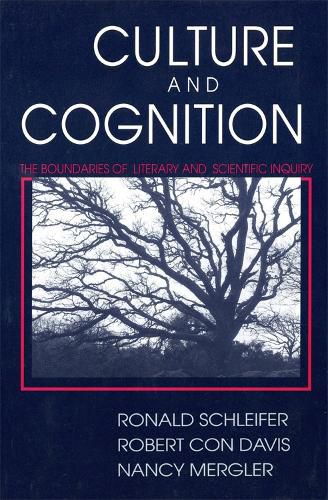Readings Newsletter
Become a Readings Member to make your shopping experience even easier.
Sign in or sign up for free!
You’re not far away from qualifying for FREE standard shipping within Australia
You’ve qualified for FREE standard shipping within Australia
The cart is loading…






This groundbreaking book challenges the disciplinary boundaries that have traditionally separated scientific inquiry from literary inquiry. It explores scientific knowledge in three subject areas-the natural history of aging, literary narrative, and psychoanalysis. In the authors’ view, the different perspectives on cognition afforded by Anglo-American cognitive science, Greimassian semiotics, and Lacanian psychoanalysis help us to redefine our very notion of culture.
Part I historically situates the concepts of meaning and truth in twentieth-century semiotic theory and cognitive science. Part II contrasts the modes of Freudian case history to the general instance of Einstein’s relativity theory and then sets forth a rhetoric of narrative based on the discourse of the aged. Part III examines in the context of literary studies an interdisciplinary concept of cultural cognition.
Culture and Cognition will be essential reading for literary theorists, historians and philosophers of science; semioticians; and scholars and students of cultural studies, the sociology of literature, and science and literature.
$9.00 standard shipping within Australia
FREE standard shipping within Australia for orders over $100.00
Express & International shipping calculated at checkout
This groundbreaking book challenges the disciplinary boundaries that have traditionally separated scientific inquiry from literary inquiry. It explores scientific knowledge in three subject areas-the natural history of aging, literary narrative, and psychoanalysis. In the authors’ view, the different perspectives on cognition afforded by Anglo-American cognitive science, Greimassian semiotics, and Lacanian psychoanalysis help us to redefine our very notion of culture.
Part I historically situates the concepts of meaning and truth in twentieth-century semiotic theory and cognitive science. Part II contrasts the modes of Freudian case history to the general instance of Einstein’s relativity theory and then sets forth a rhetoric of narrative based on the discourse of the aged. Part III examines in the context of literary studies an interdisciplinary concept of cultural cognition.
Culture and Cognition will be essential reading for literary theorists, historians and philosophers of science; semioticians; and scholars and students of cultural studies, the sociology of literature, and science and literature.